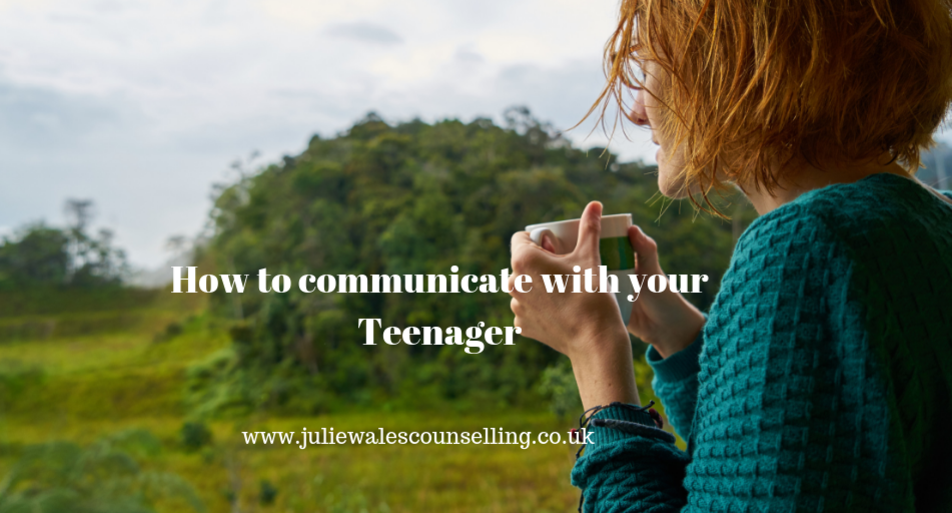How To Communicate With Your Teenager
Posted on 2nd September 2019 at 09:00
Does it often feel like a hurricane has swept through your house and you are reeling from the aftermath of an anger outburst or a major strop?!
I’m a counsellor who helps parents to improve their family life. After all, we are not given a training manual when we become parents! It’s one of the hardest jobs we will do. So, to ease some of the potential stress, here are some tips and ideas on how you can communicate better in a lot of situations involving your teenagers.
Communication Fact: Only 7% of the message we communicate to another person is through the words we use. Our tone of voice accounts for 35% and our body language 58%.
Hence, that’s why we need to model what behaviour we would like to see by offering a calm, caring and non-judgemental approach to our teenagers – at least on the outside!
Some DO’s to guarantee a better relationship with your teenager:
☺ Do use Active listening skills. Really empathise and hear what your teenager is saying by giving them your full attention. Respond with positive body language, good eye contact, nodding, saying “mmm” or “I see”, let them speak before you offer any input, even if you have silences to allow them to think.
☺ Accept their feelings even when they seem negative and completely out of proportion. They need to feel these feelings before they can self-soothe after feeling angry, frustrated, annoyed or disappointed.
☺ Allow your teenager to come to their own solutions and if they come up with a plan, then talk through the pros and cons and allowing them to try them out.
☺ Follow up the conversation later with a casual, “How did it go?” or use open questions like “How, What, I wonder….want went well, what do you think you could do if that happened next time…what would help…
☺ If arguments are escalating about household chores, take a step back, think about what they need are and what you also need. Tips: Chat as a whole family and make a list of one or two things each that you can all do. Ask what your teenager would like to do, e.g. empty dishwasher. Or if they refuse then try making a list and leave it on the side with their name on and ask them to choose one job from the list whilst you are out at work. Praise them when done.
☺ Use “I” statements: Say “I feel really tired or overwhelmed….and could really use your help with…”. “I would be really grateful for your help when you get a chance to ….”
☺ Use of humour, but only when you are both feeling calm and relaxed… sharing a joke or something you both find funny is an integral part of bringing you closer together.
Some Don’ts: Guaranteed ways to end a conversation with a teenager:
☹ Don’t try to solve their problems. (“Well, obviously you need to….”) As usually happens if they have fallen out with a friend they could be back to best friends in a couple of days and been able to resolve things for themselves. We need to have these skills to negotiate life and improve our inter-personal skills with people at school and work.
☹ Don’t interrupt them while they are talking to you. Bite that tongue rather than jumping in with your opinions and advice.
☹ Don’t lecture them (“You’re not being very mature about this are you?”). This may only lower their self-esteem at a time when they are going through huge changes, whilst their brains are forming and developing reasoning skills and their bodies are changing physically.
☹ Don’t moralise (“Well, maybe it wouldn’t have happened if you hadn’t ….” I don’t think you should have” …)
☹ Don’t minimise their worries (“Oh it’s not that bad… you’re being a bit over dramatic….)
Before you respond when your son/daughter is telling you something important, think back to when you were a teenager and how you would feel if your parent responded in this way. We tend to do parenting different from how we were parented.
What about your needs as a Parent?
We don’t get a training manual for being a parent and our job is to support our child’s development from a baby until they are an independent adult and leaving home. A crucial part of being a parent throughout this time is maintaining your own self-care and meeting your own emotional and physical needs.
When boarding a plane we are given the safety talk about putting our own oxygen mask on first before helping our child…that is exactly how we need to parent by looking after ourselves and modelling a relaxed and calm and approachable stance whereby your teenager finds it easy to talk to you.

What do you do for yourself?
☺ A few ideas:
Regular exercise, walk, run or gym.
Being creative, knitting, sewing, drawing and colouring are all mindful and relaxing in a busy family life.
Connect with people, see friends for a social, cuppa and a chat, volunteer if you have spare time. Helping others always boosts our self-esteem and will help you as a parent.
Sleep better. If you are struggling with sleep then look at how you can sleep better – warm bath or shower, read before bed, body stretching, or yoga stretches can all help.
Couple time with your partner can help both of you support one another whilst parenting.
Conclusion
You will really see the benefits in a short time if you look after you and keep a calm and relaxed approach. You are the ‘glue’ that sticks your family together and if you are less stressed your teenager will be too. If you would like some more help with communicating with your teen then please do get in touch (my contact details are below). I’d love to help!
Share this post:






